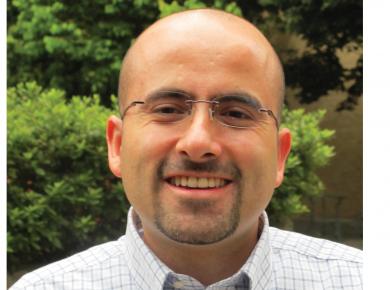Posted: March 9, 2018
“Renewal 2027” is the name that Mennonite World Conference has chosen to mark the decade of regional events that will be held to commemorate the five centuries our faith community has existed. We would like to approach these 10 years of commemorative acts by focussing on the global, ecumenical and transcultural perspectives on our history.
During this decade of regional events, we remember the past in order to look to the future. As noted by the Colombian author Gabriel García Márquez, “What matters in life is not what happens to you but what you remember and how you remember it.” We want to bring our roots to the fore so that we may thank God for the faith inheritance that we have received.
At the same time, we wish to approach our Lord in a spirit of repentance and renewal, learning from the past in order to grow in our relationship with God here and now as well as in the years to come. At the first event, “Transformed by the Word: Reading Scripture in Anabaptist Perspectives,” we explored how Martin Luther’s maxim of sola Scriptura together with the monastic ideals of imitating Christ played a role in our own tradition, and how the sacred Scriptures continue to be relevant in our global faith community today.
During that day in Augsburg, Germany, I kept in mind an art installation I saw in one of our Mennonite churches in Amsterdam (see cover). On the pulpit at the centre of the sanctuary, there is a Bible that is opened and moving. Pages are leaving or entering the Bible, blowing about the room.
This installation depicts Scripture as a living text that inserts our own histories within it through the work of the Holy Spirit. In this way, the story of the first disciples in Acts is carried forward. Our Anabaptist emphasis on imitating Christ invites us to see Scripture as a script for our own lives, a play that requires us to live it out, to put it into practice on a daily basis.
Even so, the Bible has not always been seen in this light during our Anabaptist history.
More often than not, we have used the sacred text as a tool for measuring the doctrinal orthodoxy of others, thus causing division and fragmentation within the body of Christ. This has happened too frequently in our churches when we have found that our perspectives on Scripture do not coincide.
We have often put aside the passages that invite us to live out the gift of unity in the midst of diversity. We have neglected the gift of communion in spite of and through diversity. Sadly, we have come to believe that our ethical or doctrinal divergences are reason enough to break apart the body of Christ.
Today, while we thank God for our emphasis on a communal and Christ-centred interpretation and living out of Scripture, we must keep a repentant attitude toward the divisions that exist amongst us due to an inadequate approach to reading the Scriptures. Let us seek the renewal that comes from a contrite heart, able to recognize our sin and how it causes lack of unity in the church.
It is my prayer that today our understanding of the Bible will be renewed through the living text that speaks to the now; that we can see our division as a sin that needs to be eradicated; and that our desire to live out and apply the Bible today would unite in a spirit of interdependence.
May we leave transformed by the Word!
—César García, MWC general secretary, works out of the head office in Bogotá, Colombia.
This article first appeared in Courier/Correo/Courrier October 2017



Join the Conversation on Social Media
FacebookTwitterInstagramFlickrYouTube